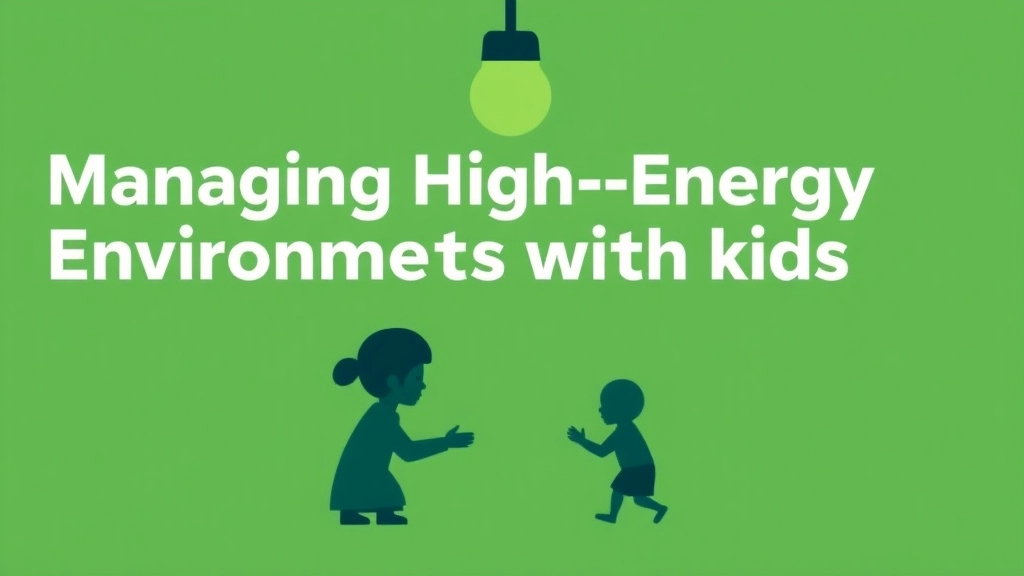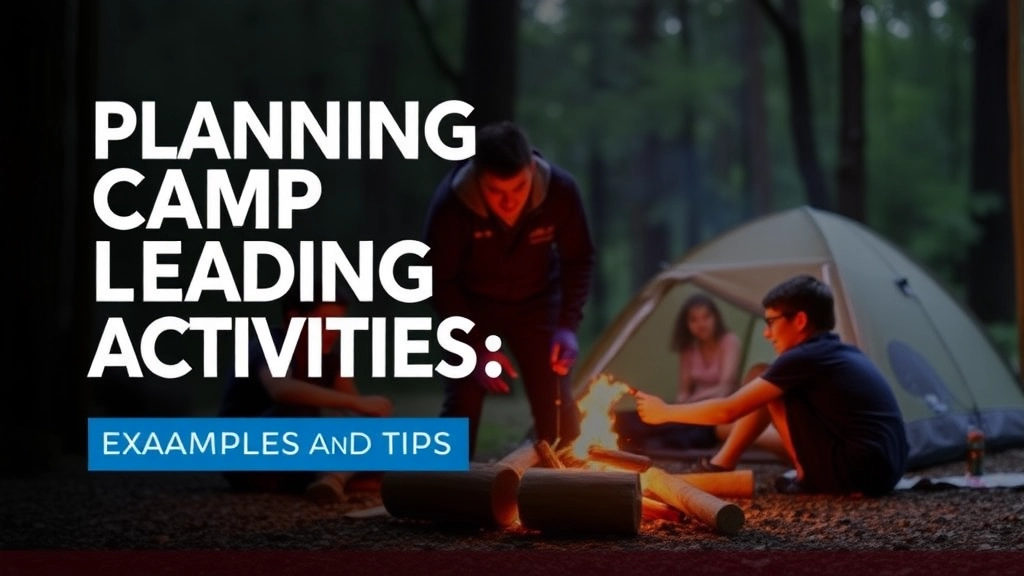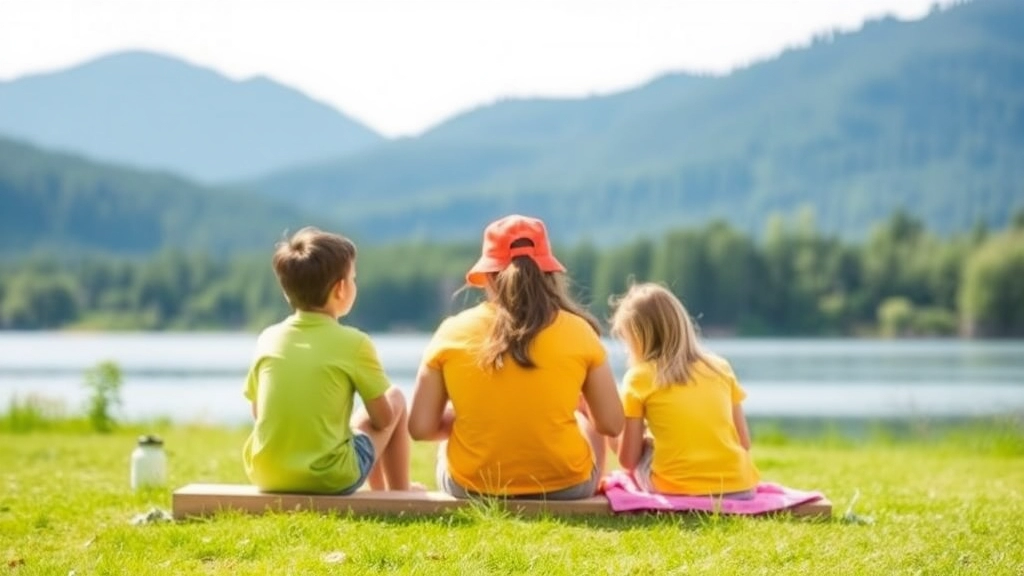Preparing for Your Summer Camp Counselor Interview
Are you gearing up to ace your interview for a summer camp counselor position? Navigating the interview process can be daunting, especially when you know you’ll face a range of questions designed to test your readiness and skills. This article is your ultimate guide to mastering those interview questions, covering everything from leadership and teamwork to handling homesickness and managing camper safety. Let’s dive in and equip you with the insights and tips you need to stand out as the ideal candidate.
Key Areas to Explore
We’ll explore common behavioral questions and delve into key areas such as:
- Conflict Resolution
- Managing High-Energy Environments
- Fostering Inclusivity in Group Activities
Essential Skills for Camp Counselors
You’ll learn how to:
- Plan engaging camp activities
- Adapt to unpredictable situations
- Balance multiple responsibilities effectively
Whether it’s communicating with campers, parents, and staff or addressing special needs and dietary restrictions, this guide has got you covered. So, let’s get started on your journey to becoming a standout summer camp counselor!
Common Behavioral Questions for Camp Counselors
Alright, let’s dive straight into it. If you’re gearing up to be a camp counselor, you know the drillâinterviews are a big part of the process. And trust me, they’re gonna throw some behavioural questions your way. These questions aren’t just fluff; they’re designed to see if you’ve got what it takes to handle a bunch of energetic kids, keep things fun, and manage any curveballs thrown your way.
Why Do You Want to Be a Camp Counselor?
This is a classic. They want to know what’s driving you. Be real here. Maybe it’s your love for the outdoors, your passion for working with kids, or the awesome experiences you had as a camper yourself. Whatever it is, lay it out there.
Tip: Mention specific skills or experiences that make you a great fit. For example:
- “I’ve always loved the outdoors and have spent the last few summers volunteering at local youth programs.”
- “My background in sports coaching has equipped me with the patience and leadership skills needed to manage and inspire kids.”
How Do You Handle Stressful Situations?
You’re gonna face high-energy environments and, let’s be honest, some chaotic moments. They want to know you can keep your cool. Share a story where you managed stress effectively.
Example: “Once, during a summer camp, we had a sudden storm. I quickly gathered the kids, kept them calm, and organised indoor activities to keep everyone engaged and safe.”
How Would You Deal with a Homesick Camper?
Homesickness is a biggie. It’s common, and they want to see if you can handle it with empathy and practicality.
Steps to Handle Homesickness:
- Acknowledge their feelings: Let the camper know it’s okay to feel this way.
- Distract and engage: Get them involved in fun activities to take their mind off it.
- Communicate: Keep an open line with the camper’s parents if needed, ensuring the child’s comfort.
Can You Give an Example of a Time You Worked as Part of a Team?
Teamwork makes the dream work, right? Camps thrive on collaboration. Share a specific example where you worked well within a team.
Example: “During a group project at university, I coordinated with my peers to divide tasks based on our strengths, ensuring we met our deadline with a high-quality presentation.”
How Do You Handle Conflict Among Campers?
Conflict is inevitable. They want to see if you can mediate and resolve issues fairly.
Conflict Resolution Steps:
- Listen to both sides: Understand the perspectives of all involved.
- Stay neutral: Don’t take sides; aim for a fair resolution.
- Encourage communication: Help the campers express their feelings and find common ground.
What Would You Do If a Camper Refuses to Participate in an Activity?
Not every kid is going to be gung-ho about every activity. They want to see if you can encourage participation without being forceful.
Approach:
- Understand why: Maybe they’re scared or unsure.
- Encourage gently: Suggest trying it out for a few minutes.
- Offer alternatives: If they’re really resistant, find another engaging activity they might enjoy.
How Do You Ensure Safety During Camp Activities?
Safety is a top priority. They want to know you’re vigilant and proactive.
Safety Measures:
- Regular headcounts: Keep track of all campers.
- Clear instructions: Ensure everyone understands the rules of an activity.
- First aid knowledge: Be prepared for any minor injuries or incidents.
How Do You Plan to Keep Campers Engaged?
Engagement is key to a successful camp experience. They want to know you’ve got a bag of tricks to keep things lively.
Engagement Tips:
- Variety of activities: Mix it up with different games, crafts, and outdoor adventures.
- Interactive sessions: Encourage participation and teamwork.
- Positive reinforcement: Celebrate achievements and efforts.
For more tips on creating engaging activities, check out our Top 10 Exciting Summer Camp Activities.
Leadership and Teamwork Skills Assessment

Alright, let’s dive into leadership and teamwork skills. These are the bread and butter of being a camp counselor. If you can nail these, you’re golden.
Why Leadership and Teamwork Matter
First off, why are leadership and teamwork so crucial?
Simple.
You’re the role model and the glue that holds the group together.
Without strong leadership, the camp can turn into chaos.
Without teamwork, nothing gets done.
Real Questions and Worries
- “How do I lead a group of kids who all have different personalities?”
- “What if my co-counselor and I don’t see eye to eye?”
- “How do I motivate kids to work together?”
Assessing Your Leadership Skills
Leadership isn’t just about barking orders.
It’s about inspiring and guiding.
Here’s how you can assess your leadership skills:
- Self-Reflection: Think about times you’ve led a group. What worked? What didn’t?
- Feedback: Ask for feedback from peers or mentors. They’ll give you the real deal.
- Role-Playing: Practice scenarios where you need to lead. It’s like a rehearsal before the big show.
Teamwork Skills Assessment
Teamwork is all about collaboration.
Here’s how to see where you stand:
- Communication: Are you clear and concise?
- Listening: Do you actually listen, or just wait to talk?
- Flexibility: Can you adapt when things don’t go as planned?
Tips for Boosting Leadership and Teamwork
Let’s break down some actionable tips:
- Lead by Example: Kids mimic what they see. Be the leader you want them to follow.
- Set Clear Goals: Everyone should know what the end game is.
- Encourage Participation: Get everyone involved. Make them feel part of the team.
- Conflict Resolution: Address conflicts head-on. Don’t let them fester.
- Positive Reinforcement: Celebrate successes, no matter how small.
Real-Life Example
Imagine this.
You’re leading a group hike.
One kid is lagging, another is racing ahead, and two are arguing over who gets to be the line leader.
What do you do?
- Step 1: Call a quick huddle. Gather everyone.
- Step 2: Set clear roles. “You’re the pace setter, you’re the navigator, and you’re the motivator.”
- Step 3: Address the conflict. “Let’s take turns being the line leader. Today, it’s you. Tomorrow, it’s you.”
Handling Conflict Among Campers
Alright, let’s dive into the nitty-gritty of handling conflict among campers. If you’ve ever been a camp counsellor, you know that conflicts among campers are as inevitable as marshmallows at a campfire. So, how do you tackle these head-on without losing your cool?
Why Conflicts Happen
First off, let’s get real about why conflicts happen. Kids are still figuring out how to communicate and manage their emotions. Throw in some competitive games, different personalities, and a bunch of sugar, and you’ve got a recipe for disagreements.
Real Questions and Worries
- “What if the kids don’t listen to me?”
- “How do I stop a fight before it gets physical?”
- “What if a camper feels like I’m taking sides?”
These are legit concerns, and trust me, you’re not alone in having them.
Key Steps to Handle Conflicts
- Stay Calm and Neutral: Your first job is to stay calm. Kids pick up on your energy. If you’re chill, it helps them calm down too. Stay neutral; don’t take sides.
- Listen First: Let each camper explain their side of the story without interrupting. This makes them feel heard and valued.
- Identify the Root Cause: Often, the fight isn’t about the game or the toy. It could be about feeling left out or misunderstood. Ask questions to get to the bottom of it.
- Set Clear Rules: Remind them of the camp rules and why they’re in place. Make sure everyone understands the consequences of breaking these rules.
- Encourage Empathy: Get each camper to see things from the other’s perspective. This is a life skill that will serve them well beyond camp.
- Find a Solution Together: Get the kids involved in finding a solution. This not only resolves the conflict but also empowers them.
Practical Tips and Tricks
- Role-Playing: Sometimes, acting out scenarios can help kids understand how to handle conflicts better.
- Conflict Resolution Games: Incorporate games that teach problem-solving skills.
- Daily Check-ins: Have regular check-ins with your group to nip any brewing conflicts in the bud.
Real-Life Example
Let me share a quick story. Last summer, two of my campers, Jake and Liam, were constantly at each other’s throats. It started with a disagreement over a ball game and escalated quickly. I pulled them aside and had them each tell their side of the story. Turns out, Jake felt Liam was always excluding him. We talked it out, and they both agreed to include everyone in games moving forward. By the end of camp, they were best buds.
Handling Escalated Conflicts
Sometimes, despite your best efforts, conflicts escalate. Here’s what to do:
- Involve Higher Authority: If a conflict gets out of hand, don’t hesitate to bring in a senior counsellor or camp director.
- Document Everything: Keep a record of what happened and the steps you took to resolve it. This is crucial for accountability.
- Follow Up: Check in with the campers involved to ensure the conflict is truly resolved and hasn’t left any lingering resentment.
For more in-depth strategies on managing camp dynamics, check out our guide on summer camp activities and our ultimate checklist for packing for summer camp. These resources can help you create a more harmonious and enjoyable camp experience for everyone involved.
Managing High-Energy Environments with Kids

Ever feel like you’re herding cats when managing a group of high-energy kids?
Yeah, me too.
It’s all about keeping the chaos in check without losing your mind.
Why is managing high-energy environments a big deal?
Because if you don’t, things can spiral out of control fast.
Kids have endless energy, and it’s our job to channel it.
Here’s how I do it:
1. Set Clear Expectations
Kids need structure.
- Start with rules: Simple, clear, and consistent.
- Use visual aids: Posters or hand signals work wonders.
- Reinforce positively: Celebrate when they follow the rules.
2. Keep Them Engaged
Boredom is your enemy.
- Rotate activities: Keep them short and sweet.
- Mix it up: Physical games, quiet time, creative projects.
- Know your audience: Tailor activities to their interests.
3. Energy Burners
Let’s face it, sometimes they just need to run wild.
- Organised chaos: Tag games, obstacle courses.
- Dance breaks: Turn up the music and let them groove.
- Nature walks: Fresh air does wonders.
4. Stay Calm and Collected
Your vibe affects their vibe.
- Deep breaths: Keep your cool, even when they don’t.
- Be the example: Show them how to handle excitement.
- Use humour: Laughter can diffuse tension.
5. Share Stories and Examples
Let me tell you about that one time…
We had a group of kids bouncing off the walls.
I set up a scavenger hunt, and boom—instant focus.
They were engaged, competitive, and having a blast.
Encouraging Inclusivity and Teamwork in Group Activities
Alright, let’s cut to the chase. Encouraging inclusivity and teamwork in group activities at camp is a big deal. It’s not just about making sure everyone gets along; it’s about creating an environment where every camper feels like they belong and can contribute. So, how do we do that? Let’s dive in.
Real Concerns from Camp Counselors
- “How do I make sure no one feels left out?”
- “What if some kids just don’t want to participate?”
- “How do I handle cliques?”
These are the questions that keep us up at night. But don’t worry, I’ve got some solid strategies to tackle these worries head-on.
Start with an Inclusive Mindset
Inclusivity starts with us, the camp counselors. If we’re not inclusive, how can we expect the kids to be? Here’s what I do:
- Model Inclusivity: Be the example. Include everyone in conversations and activities. Kids mimic what they see.
- Celebrate Differences: Make it clear that everyone’s unique traits are valued. Highlight different skills and backgrounds as strengths.
Set the Tone Early
First impressions matter. From day one, set the tone for inclusivity and teamwork.
- Icebreakers: Use icebreakers that require everyone to participate. Games like âTwo Truths and a Lieâ or a simple âName Gameâ can work wonders.
- Team-Building Activities: Kick off with activities that require collaboration. Think scavenger hunts or team challenges that need everyone’s input.
Create a Buddy System
Pairing kids up can help shy or new campers feel more comfortable. Here’s how you can do it:
- Rotate Buddies: Change buddies regularly so everyone gets to know each other.
- Peer Support: Encourage buddies to support each other, especially during activities where one might struggle.
Break Down Cliques
Cliques can form quickly, and they can be a nightmare for inclusivity. Here’s how to manage them:
- Mix Groups Often: Regularly shuffle groups for activities. This prevents cliques from becoming too tight.
- Group Goals: Set goals that require input from all group members. This encourages kids to work with different people.
Make Activities Accessible
Not all kids have the same abilities, and that’s okay. Here’s how to make sure everyone can participate:
- Adapt Activities: Modify games and activities so that everyone can join in. For example, if someone isn’t great at running, include a role that doesn’t require speed.
- Encourage Participation: Praise effort, not just success. Make sure kids know that trying is what counts.
Foster a Team Spirit
Creating a sense of team spirit can make a huge difference. Here’s what works:
- Team Names and Cheers: Let kids come up with team names and cheers. It builds camaraderie.
- Shared Goals: Set common goals for the group to achieve together, like a camp-wide challenge or a group project.
Address Issues Head-On
If you see someone being excluded or a group not working well together, address it immediately.
- Private Conversations: Talk to the kids involved privately. Understand their perspectives and help them see the importance of inclusivity.
- Group Discussions: Sometimes, a group discussion about teamwork and inclusivity can help. Keep it positive and solution-focused.
Real-Life Example
Let me share a quick story. Last summer, we had a camper named Jamie who was really shy and often left out. We paired Jamie with a more outgoing camper, Alex, for a team-building activity. Alex’s encouragement helped Jamie open up, and by the end of camp, Jamie was leading group cheers. It was a win for everyone.
For more tips on creating an inclusive camp environment, check out our guide on engaging summer camp curriculum and learn about the activities and traditions that foster teamwork and inclusivity.
Addressing Homesickness and Emotional Challenges

Homesickness and Emotional Challenges at Camp
Let’s face it. Homesickness is a real thing.
Kids miss home. They miss their parents. And it’s your job to help them through it.
So, how do you tackle homesickness and emotional challenges?
Here are some practical tips:
1. Recognize the Signs Early
Kids might not say, “I miss home,” but their actions will speak louder.
- Withdrawal from activities
- Crying, especially at night
- Frequent complaints of physical discomfort
2. Create a Supportive Environment
Make the camp feel like a second home.
- Personalize their space with familiar items
- Encourage friendships through team activities
- Be approachable and available
3. Keep Them Busy
Idle time is the enemy.
- Plan engaging activities
- Rotate between high-energy and calm sessions
- Involve them in planning
4. Communicate with Empathy
Listen first. Talk second.
- Acknowledge their feelings
- Share your own stories of overcoming homesickness
- Reassure them it’s okay to miss home
5. Involve Parents When Necessary
Sometimes, a call home does wonders.
- Set specific times for calls
- Ensure the child is calm before and after the call
- Encourage positive conversations
6. Build a Routine
Structure brings comfort.
- Consistent meal times
- Regular activity schedules
- Evening wind-down rituals
7. Encourage Journaling
Writing is therapeutic.
- Provide journals and pens
- Prompt them with questions
- Celebrate their entries
8. Celebrate Small Wins
Boost their confidence.
- Acknowledge participation
- Reward efforts, not just achievements
- Share their progress with them
Real Stories
I remember a camper named Jamie.
First-time away from home.
Cried every night for the first week.
We personalized his bunk with photos from home.
Involved him in planning a scavenger hunt.
By the end of camp, he didn’t want to leave.
Strategies for Managing Camper Safety and Rule Enforcement
Managing camper safety and enforcing rules can be a bit of a tightrope walk, right? You’ve got to keep everyone safe while making sure they’re having a blast. Let’s dive into some practical strategies that can help you nail this balance.
Real Concerns: Keeping Kids Safe and Happy
First off, let’s talk about the real worries you might have. How do you keep a bunch of energetic kids safe without turning into the camp sheriff? How do you enforce rules without killing the vibe? These are legit concerns, and guess what? You’re not alone.
Clear and Consistent Rules
One of the best ways to manage camper safety is by setting clear and consistent rules. Kids need to know what’s expected of them, and they need to hear it often.
- Set clear rules from day one: Make sure everyone knows the rules right from the start. Use simple language and repeat them often.
- Be consistent: If you let one kid break a rule without consequences, others will follow. Consistency is key.
- Positive reinforcement: Praise kids when they follow the rules. It’s way more effective than just punishing bad behaviour.
Engaging Safety Drills and Activities
Safety drills don’t have to be boring. Make them engaging and fun so kids actually remember what to do in an emergency.
- Interactive drills: Turn safety drills into games. For example, a scavenger hunt that includes finding the nearest exits or first aid kits.
- Role-playing: Have kids act out different scenarios. It’s a hands-on way to learn what to do if something goes wrong.
Keeping an Eye on Everyone
You can’t be everywhere at once, but you can make sure you’ve got eyes everywhere.
- Buddy system: Pair kids up so they can look out for each other. It’s a simple way to keep everyone accounted for.
- Regular headcounts: Do headcounts before and after activities. It’s a quick way to make sure no one’s missing.
- Walkie-talkies: Use walkie-talkies to stay in touch with other counsellors. It’s old school but super effective.
Handling Rule Breakers
When kids break the rules, it’s important to handle it in a way that doesn’t escalate the situation.
- Stay calm: Losing your cool won’t help. Stay calm and address the issue firmly but kindly.
- Explain the consequences: Make sure the kids understand why the rule is important and what could happen if it’s broken.
- Follow through: If there’s a consequence for breaking a rule, make sure you follow through. Kids need to know you mean business.
Real-Life Example: The Campfire Incident
Let me share a quick story. Last summer, we had a kid who kept running around the campfire despite being told to stop. Instead of just yelling at him, we pulled him aside and explained why it was dangerous. We even showed him some cool fire safety tips. Guess what? Not only did he stop running, but he also became our campfire safety ambassador, reminding other kids to stay safe.
For more tips on ensuring a safe and enjoyable camp experience, check out our guide on essential guidelines for safety at summer camps. And if you’re looking for fun and engaging activities to keep the kids entertained, our summer camp day pass activities article has got you covered.
Planning and Leading Camp Activities: Examples and Tips

Planning and leading camp activities can feel like juggling flaming torches while riding a unicycle.
You’re probably wondering, “How do I keep the kids engaged without losing my mind?”
Let’s break it down.
Start with Knowing Your Campers
First off, understand your audience.
Are they into sports, arts, or nature?
Knowing their interests is like having a map in a maze.
Example Activities
- Sports Day: Set up a mini-Olympics. Think sack races, three-legged races, and tug-of-war.
- Arts and Crafts: Create a nature collage or friendship bracelets.
- Nature Walks: Turn a hike into a scavenger hunt.
Pro Tips for Leading Activities
- Preparation is Key:
- Have all materials ready.
- Plan for extra time.
- Always have a backup activity.
- Clear Instructions:
- Keep it simple.
- Demonstrate if possible.
- Use visuals or props.
- Engage and Encourage:
- Be enthusiastic.
- Cheer them on.
- Give positive feedback.
Handling the Unexpected
Stuff happens.
Kids get bored or things go sideways.
Here’s how to stay cool:
- Stay Flexible:
- Be ready to switch gears.
- Improvise when needed.
- Read the Room:
- If they’re losing interest, pivot.
- Keep activities short and sweet.
Safety First
Always think about safety:
- Supervise Closely:
- Keep an eye on everyone.
- Know where your first aid kit is.
- Set Boundaries:
- Explain the rules.
- Make sure they understand.
Wrapping Up
End on a high note:
- Debrief:
- Ask what they liked.
- Get feedback for next time.
- Celebrate Success:
- Acknowledge their efforts.
- Give out small rewards.
Planning and leading camp activities doesn’t have to be a headache.
With a bit of prep and a lot of enthusiasm, you’ll nail it.
And remember, the keyword here is fun.
Adaptability in Unpredictable Situations at Camp
Are you ready to handle the unexpected at camp? Let’s face it, no matter how much you plan, camp life is unpredictable. From sudden weather changes to unexpected camper behaviour, being adaptable is key. Here’s how I tackle the chaos and keep things running smoothly.
Why Adaptability Matters
Adaptability isn’t just a buzzword; it’s a survival skill in the camp world. When things go south, how you react can make or break the experience for everyone. Here are some real concerns you might face:
- Sudden weather changes: What do you do when a sunny day turns into a thunderstorm?
- Camper emergencies: How do you handle a camper falling sick or getting injured?
- Activity disruptions: What happens when a planned activity can’t go ahead?
Be Prepared for Anything
Preparation is half the battle. Here’s how I stay ready for the unexpected:
- Have a backup plan: Always have a Plan B (and C). If an outdoor activity gets rained out, what’s your indoor alternative?
- Emergency kits: Keep first aid kits and emergency supplies handy. Know where they are and how to use them.
- Quick decision-making: Sometimes you have to make decisions on the fly. Trust your training and instincts.
Real-Life Examples
Let me share a story. Last summer, we planned a big outdoor scavenger hunt. Halfway through, the skies opened up. Instead of calling it a day, we moved the hunt indoors. We used the camp’s common areas and turned it into a mystery hunt. The kids loved it, and it became one of the highlights of the camp.
Strategies for Staying Adaptable
Here are some practical tips to keep your cool when things go haywire:
- Stay calm: Your reaction sets the tone. If you panic, the kids will too.
- Communicate: Keep everyone in the loop. Let campers and staff know what’s happening and what the new plan is.
- Be flexible: Sometimes, you have to roll with the punches. Be willing to change plans and adapt on the go.
- Learn from experience: Each situation teaches you something new. Use these lessons to improve your future responses.
Balancing Multiple Responsibilities
Being adaptable also means juggling multiple tasks without dropping the ball. Here’s how I manage:
- Prioritise: Focus on what’s most important in the moment. Safety always comes first.
- Delegate: Don’t try to do everything yourself. Trust your team and delegate tasks.
- Stay organised: Keep a checklist and stay on top of your responsibilities. This helps you stay focused even when things get chaotic.
Communication is Key
Effective communication can make all the difference. Here’s how I keep lines open:
- With campers: Explain changes clearly and calmly. Make sure they understand what’s happening and why.
- With parents: Keep parents informed about any significant changes or emergencies.
- With staff: Ensure your team is on the same page. Regular briefings and updates can help everyone stay coordinated.
Handling Special Needs and Dietary Restrictions
Adaptability also extends to managing special needs and dietary restrictions. Here’s my approach:
- Know your campers: Understand their needs and preferences before camp starts.
- Plan meals carefully: Work with the kitchen staff to ensure all dietary restrictions are met.
- Be prepared for emergencies: Have a plan in place for allergic reactions or other health issues.
Interested in finding the best camps for your child? Check out our guide on top art camps for summer 2024. For those looking for a unique experience, explore our Spanish immersion summer camps for an enriching and fun-filled summer.
Balancing Multiple Responsibilities and Time Management

Ever feel like you’re juggling a dozen balls and can’t drop a single one?
Welcome to the life of a camp counsellor.
Balancing multiple responsibilities and time management is crucial for keeping the camp running smoothly and making sure every camper has a blast.
Why Time Management is Key
Time management isn’t just a buzzword; it’s your lifeline.
Without it, you’ll find yourself overwhelmed, and the campers will notice.
So, let’s break it down.
Prioritise Like a Pro
First things first, prioritisation.
You can’t do everything at once.
Here’s how I handle it:
- Urgent vs. Important: Know the difference. Urgent tasks need immediate attention, while important tasks contribute to long-term goals.
- Daily To-Do List: Write it down. Tick it off. Feels good, right?
- Delegate: Trust your team. You don’t have to do it all.
Use Tools and Tech
We live in a digital age, so why not use it?
- Planner Apps: Apps like Trello or Asana keep your tasks organised.
- Reminders: Set alarms for critical tasks.
- Shared Calendars: Sync with your team to avoid clashes.
Real-Life Example
Last summer, I had to manage a talent show, a scavenger hunt, and a nightly campfire—all in one day.
Sounds crazy, right?
Here’s how I did it:
- Morning: Focused on the scavenger hunt. Set up clues and routes.
- Afternoon: Prepped for the talent show. Helped campers with their acts.
- Evening: Organised the campfire. Made sure safety rules were clear.
By breaking the day into chunks, I stayed on top of everything.
Handling Interruptions
Interruptions are part of the job.
A camper might get homesick, or a planned activity might get rained out.
Here’s how to stay cool:
- Stay Flexible: Have backup plans.
- Quick Decisions: Trust your gut and make the call.
- Keep Calm: Your attitude sets the tone. Stay positive.
Time Management Tips
Quick tips to keep you sharp:
- Set Clear Goals: Know what you want to achieve each day.
- Take Breaks: Recharge to stay effective.
- Review and Adjust: At the end of the day, see what worked and what didn’t.
Communication with Campers, Parents, and Staff
Communication with campers, parents, and staff is the backbone of a successful camp experience. Let’s dive into how to make it smooth and effective.
Real Questions and Worries
Ever wondered how to keep everyone in the loop without turning into a human megaphone? Or how to handle those tricky parent questions without breaking a sweat? Yeah, me too. Here’s the lowdown on keeping communication clear and stress-free.
Key Strategies for Effective Communication
With Campers:
- Be Clear and Direct: Kids need straightforward instructions. No fluff, just the facts.
- Use Positive Reinforcement: Encourage them with positive words. “Great job on that activity!” goes a long way.
- Active Listening: Show them you’re paying attention. Nod, make eye contact, and repeat back what they say.
With Parents:
- Regular Updates: Keep them informed with daily or weekly updates. Use emails, texts, or a camp app.
- Be Transparent: If there’s an issue, be upfront. Parents appreciate honesty.
- Personal Touch: Address concerns personally. A quick call can ease worries faster than an email.
With Staff:
- Team Meetings: Regular check-ins to discuss plans and issues. Keep everyone on the same page.
- Open Door Policy: Encourage staff to come to you with problems or suggestions.
- Delegate: Trust your team. Assign tasks and let them take ownership.
Handling Common Scenarios
Dealing with Upset Parents:
- Stay Calm: Listen without interrupting. Show empathy.
- Provide Solutions: Offer a clear plan to address their concerns.
- Follow Up: Check back with them to ensure they’re satisfied with the resolution.
Managing Camper Conflicts:
- Mediation: Bring the kids together to talk it out. Guide the conversation but let them express themselves.
- Set Clear Expectations: Remind them of the camp rules and the importance of respect.
Real-Life Example
I remember one summer, a camper was having a tough time adjusting. His parents were worried sick. I made it a point to send them daily updates and even shared a few photos of him having fun. By the end of the week, their anxiety had melted away, and their son was thriving. It was all about keeping the lines of communication open and honest.
Tools and Tips
- Camp Apps: Use technology to streamline updates and communications.
- Bulletin Boards: Old-school but effective for daily schedules and announcements.
- Feedback Forms: After activities, get feedback from campers and staff to improve communication.
For more tips on making your camp experience unforgettable, check out our Summer Camp Week Themes for Unforgettable Fun and learn how to keep your camper engaged and excited throughout their stay. Additionally, if you’re preparing for the upcoming season, don’t miss our BSA Summer Camps 2024: Key Dates and Tips for essential information and planning advice.
Managing Special Needs and Dietary Restrictions
How do I manage special needs and dietary restrictions at camp?
This is a biggie for camp counselors, right?
Kids come with all sorts of needs, and we’ve got to be on top of it.
Understanding Special Needs
First things first, get to know each camper.
Ask questions:
- What do they need daily?
- Any specific routines?
- How can we make them feel included?
Be proactive:
- Chat with parents before camp starts.
- Create a plan tailored to the camper.
- Keep communication open with the team.
Handling Dietary Restrictions
Food is a big deal.
Here’s what I do:
- Check allergies: Know them like the back of your hand.
- Plan meals: Work with the kitchen staff to ensure options.
- Label clearly: Make sure everything is marked.
Involve the camper:
- Let them help choose meals.
- Educate them on safe choices.
Real Stories
I remember a camper with severe nut allergies.
We had a meeting with the kitchen staff, labeled everything, and even taught other campers about it.
Result? No issues, and everyone learned something.
Keeping It Safe and Fun
Safety is non-negotiable.
Strategies:
- Emergency plan: Know it, practice it.
- Buddy system: Pair campers to look out for each other.
- Regular check-ins: Keeps everyone in the loop.
For more tips on ensuring a safe and inclusive environment, check out our guide on JCC summer camps. And if you’re looking for ideas on how to make camp meals more engaging, don’t miss our summer camp craft ideas that can be incorporated into meal planning.
Frequently Asked Questions (FAQs) for Summer Camp Counselor Interview Questions
Why are leadership and teamwork crucial for a camp counselor?
Leadership and teamwork are essential because you serve as a role model and the glue that holds the group together. Strong leadership prevents chaos, and effective teamwork ensures tasks are completed efficiently.
What are some common concerns about leading a group of kids?
Common concerns include managing kids with different personalities, resolving disagreements with co-counselors, and motivating kids to work together.
How can I assess my leadership skills?
You can assess your leadership skills through self-reflection, seeking feedback from peers or mentors, and practicing role-playing scenarios.
What are the key aspects of teamwork skills?
Key aspects of teamwork skills include clear and concise communication, active listening, and flexibility in adapting to changing situations.
How can I manage high-energy environments with kids?
Managing high-energy environments involves setting clear expectations, keeping kids engaged with varied activities, and staying calm and collected. Techniques like organized chaos, dance breaks, and nature walks can also help.
What are effective strategies for addressing homesickness in campers?
Effective strategies include recognizing early signs, creating a supportive environment, keeping campers busy with engaging activities, and communicating with empathy. Sometimes involving parents can also help.
How do I plan and lead camp activities successfully?
Successful planning and leading of camp activities involve knowing your campers’ interests, preparing thoroughly, giving clear instructions, and staying flexible to handle unexpected situations. Always prioritize safety and end activities on a positive note.
Why is time management important for a camp counselor?
Time management is crucial to keep the camp running smoothly and ensure every camper has a great experience. It helps prevent feeling overwhelmed and ensures that tasks are completed efficiently.
What are some tips for balancing multiple responsibilities at camp?
Tips include prioritizing tasks, using planner apps and shared calendars, delegating responsibilities, and staying flexible to handle interruptions. Setting clear goals and taking breaks to recharge are also important.
How can I handle interruptions effectively?
Handling interruptions involves staying flexible with backup plans, making quick decisions, and maintaining a positive attitude to set the right tone for the campers.
References
-
Leadership Activities for Kids
-
10 Tips for Helping Kids Manage Stress
-
10 Tips for Camp Counselors

